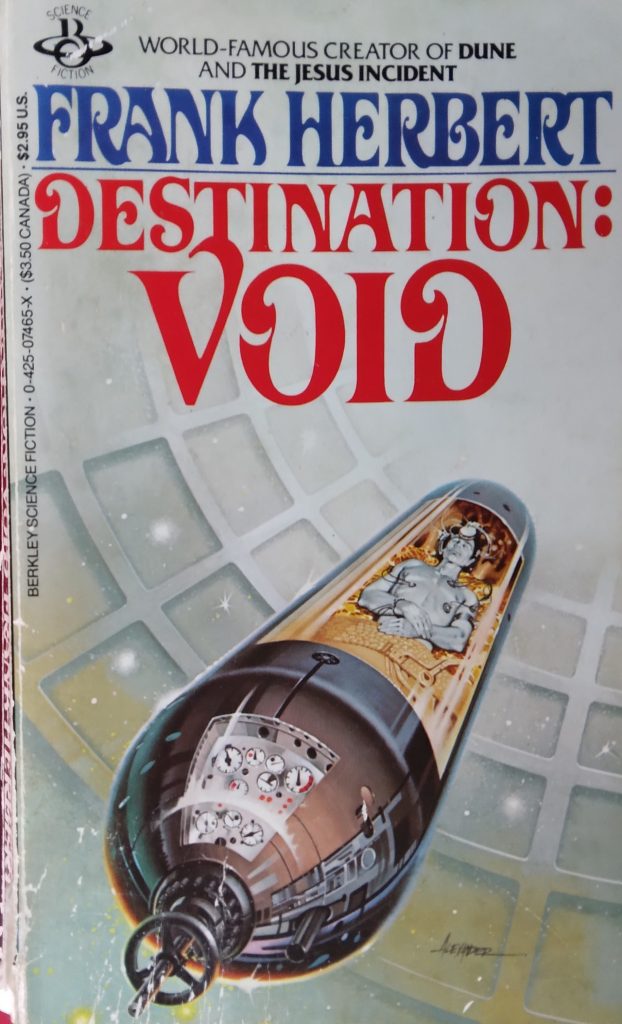By Frank Herbert

$1.99 at Goodwill. With all the interest and hype surrounding the newest film version of Frank Herbert’s Dune, and having read the Dune series as a kid, I have been more and more curious about Herbert’s earlier non-Dune science fiction, and how that influenced and informed what is popularly considered his masterpiece.
Destination Void has been criticized as boring and possibly too cerebral. I actually had to read this twice, because the first time around, I read at night while laying in bed. Since I frequently fell asleep within the first sentence and a half of each chapter, it took me an extraordinarily long time to finish what I perceived to be a broken narrative of nothing really much happening at all. It is ironic that the book is about consciousness, and that one of the characters near the end keeps saying, ‘we are not awake.’ When I finally finished, an effort I finally forced myself into because of pressure to read the next book on my list, I had no idea what had happened and looked to reviews to find out. As mentioned before the reviews only confirmed my half asleep impression of the novel.
When It came time to review the book myself, I realized that I really had no idea what had happened and that if I read the book during my waking hours, perhaps I could get it done faster and with more balanced perspective. It is after all, about consciousness. So, I committed to staying conscious, and this is what I discovered.
The book is as critics say, largely dialogue about the question of ‘Are we conscious? What makes us So?’ The characters try to answer this question by building an artificial intelligence to save their lives. There is little action, despite the fact that the crew sits on what are called, ‘action couches.’ Mostly they talk within 3 or so rooms, in a giant egg hurtling through the void. All of this is true. It is not a space adventure or space opera. It is cerebral, and you have to be awake to appreciate it. There are a few tense moment near the end but don’t expect high action. There is some techno jargon, which in my non comp-sci opinion is mostly made up. It is not hard science fiction, but it could be classified as hard science philosophy. It’s characters have secrets and their inner dialogue is audible to the reader, which reminded me of Dune.
It is not Dune, but why should it be? It seeks to ask specific questions about human existence and it does it in a simple lab experiment, it is not about politics, or commerce, or world building. In my opinion there is too much expectation of that in our media today. I would have been content for George Lucas to stop at Empire Strikes Back. I don’t need to know how Jar Jar Binks is Frodo’s forgotten nephew and that Neo created Sky Net or whatever it is. There is nothing wrong with this book.